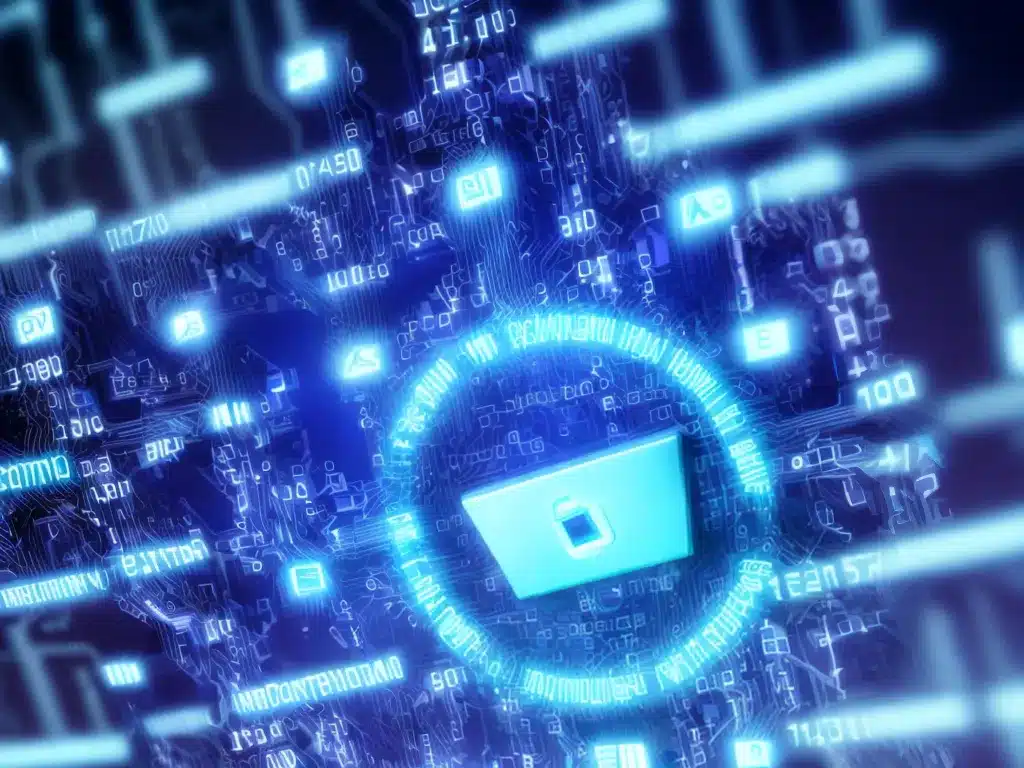Introduction
Blockchain technology is rapidly changing the way we think about data security. Blockchain is a distributed ledger system that allows multiple parties to confidentially share and verify information without needing a central authority. This innovative approach to data management has the potential to revolutionize data security across many industries. In this article, I will provide an in-depth look at how blockchain works and why it offers such robust security protections.
How Blockchain Provides Enhanced Security
Blockchain technology enables a decentralized approach to data security that traditional methods cannot match. Here are some of the key ways blockchain boosts data security:
Decentralized Verification
Each participant in a blockchain network maintains their own copy of the ledger. Any changes or additions are broadcast to the peer-to-peer network and must be verified by a consensus of the participants before being added. This eliminates single points of failure and prevents tampering by bad actors.
Cryptographic Security
Blockchain transactions are secured through advanced cryptographic techniques like digital signatures and hash functions. These mathematical algorithms provide authentication and integrity while keeping data private. Cryptography ensures transactions cannot be altered without detection.
Transparency and Auditability
The ledger in a blockchain is visible to all network participants. This transparency allows any party to audit the chain of transactions. The decentralized nature also prevents transactions or records from being erased without a trace. These features enable full accountability.
Reduced Risk of Data Breaches
With blockchain, data is distributed rather than stored centrally. And private keys provide access control to that data. Together, these aspects mean blockchains are far less vulnerable to catastrophic data breaches that arise from centralized databases.
Use of Smart Contracts
Smart contracts enable complex functions like data access policies and evidence of compliance to be executed automatically when certain conditions are met. This adds a programmable layer of security beyond simply storing records.
Blockchain Use Cases for Enhanced Data Security
Many industries are already exploring ways to utilize blockchain technology to boost the security, privacy, and integrity of their data storage systems. Here are some leading examples:
Healthcare Information Systems
Healthcare providers can leverage blockchain’s decentralized approach to securely share patient medical records across locations and providers. Cryptography keeps data private while smart contracts automate compliant access.
Supply Chain Monitoring
For supply chain management, blockchains create immutable records of parts provenance and custody. This prevents fraud and enhances traceability without revealing trade secrets.
Financial Transactions
Banks are implementing blockchains for payment networks to enable direct transfers of value between parties without intermediaries. The distributed ledger also reduces transaction costs and settlement times.
Voting Systems
Blockchain-based voting could offer transparent and tamper-proof elections. Encrypted votes get added to the ledger in real-time while results remain private until tallied. This prevents rigging and fraud.
Identity Management
Digital identities tied to blockchain wallets allow for robust KYC and anti-money laundering checks without exposing personal information. Users control what data is shared.
Challenges to Adoption
While the security advantages of blockchain are clear, there remain challenges to widespread enterprise adoption, including:
- Perceived regulatory uncertainty
- Integration with legacy IT systems
- Lack of standards between platforms
- Scalability limitations of public blockchains
- Availability of blockchain expertise
However, solutions to these issues are already emerging, and adoption is accelerating. The technology holds immense potential to enable a radically more resilient approach to data security.
Conclusion
In summary, blockchain offers game-changing security properties like decentralized trust, cryptographic integrity, transparency, and reduced risk of catastrophic data breaches. Leading industries are already exploring blockchain systems to protect sensitive information, financial data, medical records, supply chain details, votes, and digital identity credentials. As solutions emerge for interfacing with legacy architecture, regulatory uncertainty, and scalability demands, enterprises across sectors will continue adopting blockchains to transform how data security is achieved. The unique structure of blockchain technology represents the next generation of data protection and resilience.












